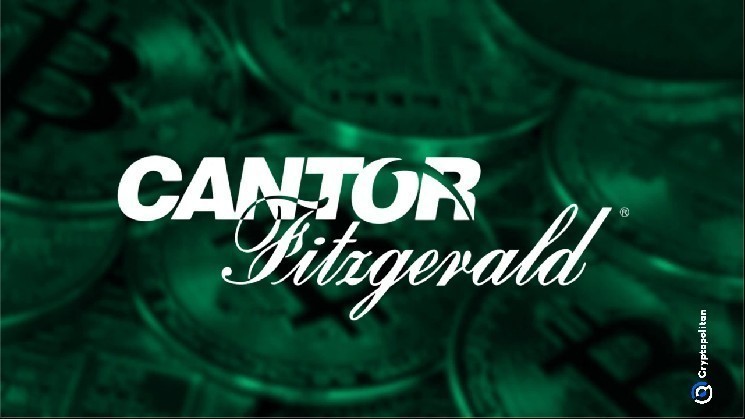Cantor Fitzgerald is chasing what could be the biggest crypto payday in Wall Street history. The New York investment bank says Tether stock could soar to $25 billion if the stablecoin giant's fundraising reaches a $500 billion valuation, according to Bloomberg.
More than a year ago, the company purchased $600 million worth of convertible notes, vesting them with a 5% stake, subject to the terms of the final deal allowing conversion and sale. If this valuation is achieved, Tether would rank alongside Sam Altman's OpenAI as one of the world's most valuable privately held companies.
The deal is at the center of Kantar's ongoing pitch to investors. It is difficult enough to pull off a private round of this size, but this round is under very intense scrutiny.
The potential $25 billion gain represents one of the most profitable balance sheet moves ever for a Wall Street company and would add a new twist to the long ties between Howard Lutnick, Tether and U.S. politics.
Lutnick family to manage Kantar as Tether deal progresses
When Cantor Fitzgerald LP founder Howard Lutnick joined President Donald Trump's Cabinet as secretary of commerce earlier this year, his sons Brandon, 27, and Kyle, 29, were named the company's chief executive officer and executive vice chairman.
Earlier this month, the 64-year-old Wall Street legend completed the sale of his stock to meet federal ethics regulations that come with his new role. The sale enabled him to participate in matters related to Cantor's financial holdings.
Mr. Howard's children wasted no time in strengthening their relationship with Tether. In fact, during a panel discussion in Singapore last week, Brandon Lutnick appeared next to Tether CEO Paolo Ardoino to describe their months together in Switzerland, saying the company “really taught me everything I know.”
This emergence is the result of years of close cooperation, and Tether remains Kantar's most important customer, with the bank responsible for much of its funding and balance management.
Even with that relationship, uncertainty clouds the deal. Evaluation goals and final structure are still under consideration. It remains unclear whether Cantor will be allowed to convert the bonds into equity or offload some to new backers. But inside the company, everyone is paying attention to the turnaround. If the conversion is resolved, Kantar's paper profits could be many times its normal annual revenue.
Tether’s valuation could change the fate of the cryptocurrency and Cantor forever
Even at half its target valuation, Cantar would reap tens of billions of dollars, a return that would be unmatched in its normal line of business.
Last year, Kantar's investment banking division posted net revenues of approximately $2 billion. When you see this, you can see the success that is about to come.
Many of Kantar's employees, from senior executives to junior partners, own equity through a limited partnership structure. If Tether's funding is successful, it will improve not only the company's reputation but also the personal wealth of its employees.
On Tether's side, the company's chairman, Giancarlo Debasini, a former plastic surgeon, said his wealth could soar to $224 billion if the $500 billion goal is realized, making him the fifth richest person on the planet.
Meanwhile, Tether’s USDT remains the most held stablecoin in the world, pegged to the US dollar, with $180.6 billion in circulation.
As Secretary of Commerce, Howard Lutnick has championed the regulation and adoption of cryptocurrencies. “We're going to move forward with cryptocurrencies, and Donald Trump is leading the way,” he said at a White House summit in March.
In July, the Trump administration introduced a regulatory framework for stablecoins, a top request from crypto leaders such as Tether executives.

